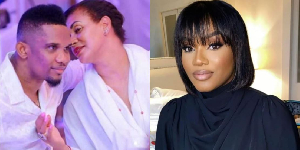Persons with Disabilities, PWDs, have presented a litany of problems which they want the GCE Board to solve before the written phase of the 2015 GCE Examinations.
The Memo, which was handed to Paulina Chatel, representative of the Registrar of the GCE Board in the Northwest Region, has been copied to the President of the Republic, the Prime Minister and related services including the Chairman Commission of Human Rights and Freedoms.
The five page document highlights the challenges faced by PWDs and proposed solutions.
“While commending the GCE Board for the strides they are making to ensure that PWDs take part in official exams organised by the Board, we equally want to frown at the negative attitude, and insensitivity of the current top officials of the Board to the plights of persons with disabilities.
Those with disabilities are reminding the GCE Board that the decision taken by the Board sometime last year, barring visually impaired Candidates from writing some science subjects like Biology, Human Biology, Geography, Chemistry, and others because the GCE Board could not produce diagrams in Braille greatly disenfranchised and frustrated many Candidates, who have, for more than five years, been preparing for the GCE Ordinary Level Exams.”
This, according to them, was unfair, given that candidates who sat for previous sessions of the same examinations had these same subjects Brailed with diagrams.
In this regard, those with disabilities propose that the GCE board should use both the High Tech Machines and the manual method of brailing examination questions with diagrams. The PWDs fumed that the GCE Board has been discriminating against them by setting questions that exclude them because they contain pictures and coloured maps that cannot be produced in Braille, since colours cannot be accessed through the sense of touch.
As a proposed solution, the PWDs are requesting the Board to create a section containing questions of equal strength and relevance. PWDs said the Board has been excluding visually impaired candidates from the pre-testing stage of the examination, whereas, the Board is supposed to include schools and institutions with visually impaired candidates.
The PWDs argued that this should not be the case, given that both visually impaired candidates and those with sights are allocated the same time during official examinations, whereas it is slower to read and write on Braille than on print.
As a solution, the PWDs are advocating for extra time for visually impaired candidates during official examinations.
The memo further states that the visually impaired have tremendously suffered from the negative attitudes of some invigilators, who do not understand their peculiar needs and so “reprimand them when they seek for assistance.”
To those living with disabilities, these invigilators should be schooled at seminars.
Worse still, they said, visually impaired candidates have often been marked absent for some subjects that they sat for.
The solution, they said, is for a special Committee to be created to handle the transmission of scripts of visually impaired from writing to marking centres.
As concerns students with hearing defects, they said English, which is the second language to them, is often used, rather than the sign language which the candidates better understand.
“We suggest that qualified persons who fully understand the semantic differences of the two languages be given the opportunity to mark the scripts of candidates with hearing defects.
Some aspects of the examination like Listening Comprehension, they said, posed a serious Challenge to these students.
Finally, the PWDs requested a special Commission to be created, bringing together all stakeholders, persons with disabilities, inclusive education actors and international experts to develop an inclusive evaluation policy in Cameroon.
Apart from Braille and sign language, which to them are the traditional methods of evaluating some of the candidates with special needs, they suggested that the Board in future can use assistive and adaptive technologies to optionally suit the convenience of candidates with special needs.
The ten signatories to the memo, led by Samuel Nyingcho, President of PWDs have warned that if the problems are not solved urgently, before the registration of GCE June 2015 comes to an end; “We shall be constrained to explore other avenues to bring our situation to the lime light.
Actualités of Monday, 1 December 2014
Source: Chris Mbunwe













